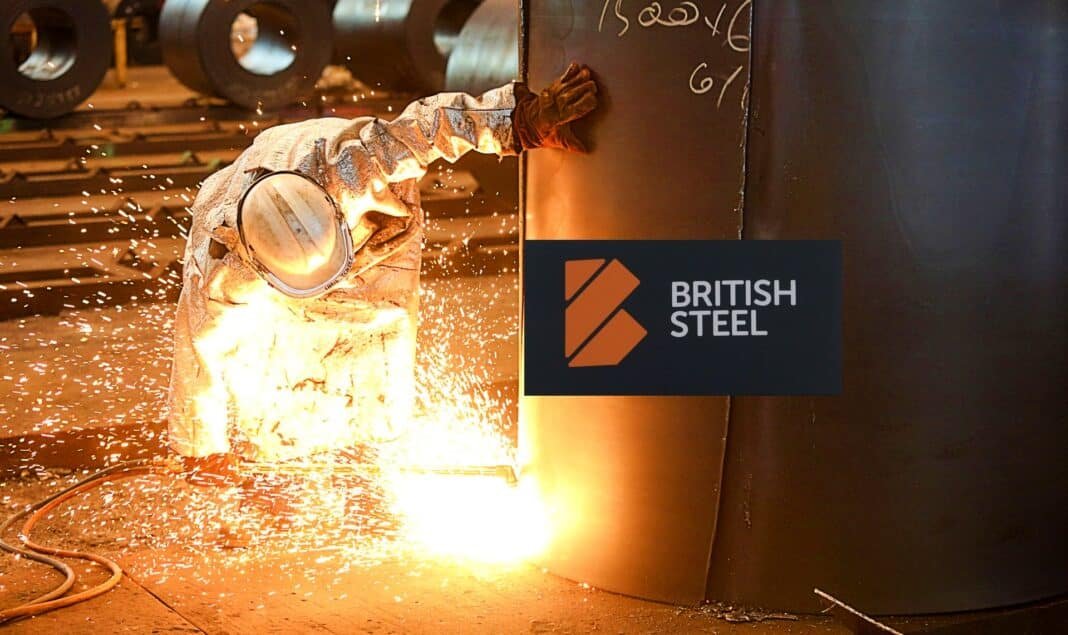The UK government is considering a plan to channel a £300 million ($372 million) climate package to help British Steel reduce its carbon emissions and save it from collapsing.
Once a giant UK steel manufacturer, British Steel has been hit hard in recent years. Three years ago, the Chinese Jingye Group bought the steelmaker, making it the 3rd owner in four years.
A final decision has not been made to date and is set to be announced in the coming days.
Saving UK British Steel
The investment deal will help the Chinese-owned steelmaker to become more eco-friendly by transitioning from blast furnaces to electric arc furnaces. The company’s site is in Scunthorpe, northern England.
The government aid will also help protect jobs at the Chinese-owned steelmaker, employing about 4,000 people directly.
The Department for Business, Energy, and Industrial Strategy said in a statement:
“The government recognizes the vital role that steel plays within the UK economy, supporting local jobs and economic growth and is committed to securing a sustainable and competitive future for the UK steel sector…”
Negotiations about the deal are ongoing so the business secretary can’t comment yet about it. But the official considers “the success of the steel sector a priority and continues to work closely with industry to achieve this.”
British Steel has been seeking urgent financial support after it was heavily affected by soaring energy and carbon prices. UK public officials have been urging the Chancellor to come into rescue.
They’re saying that the fall of the steelmaker will also impact the government. It can lead to alarming decommissioning liabilities and may undermine steel production in the UK.
The decision comes after the UK steel industry’s struggles were revealed. Another steelmaker, Liberty Steel, decided to cut its production in Britain and stop operations in some sites. All that’s due to the high energy costs threatening lay-offs.
Add to that the decrease in demand last year over the fear of recession taking on the region. Consumption from major customers such as construction companies and manufacturers also fell.
And so the need for intervention from the government.
Shifting Away from Coal to Electric
But there are some strings attached to the British Steel package deal.
One is to protect jobs at the company. Another condition is that Jingye Group has to invest at least £1 billion in British Steel by the start of the next decade.
But the general goal is to help the company reduce its carbon emissions by shifting away from coal.
The traditional way of producing steel using coal represents about 70% of the world’s steel production. This produces about 2 tons of carbon for every ton of steel produced.
Electric arc furnaces (EAFs) produce the remaining 30% of the steel. EAFs emit lower levels of carbon than blast furnaces as they can run on renewable power. They are best used on recycled steel.
Report shows the need to act now to bring the steel industry to net zero emissions. And according to the analysis, the biggest factor for the industry to be successful in its climate goals is to switch to EAFs.
Another option is producing steel using green pig iron. It’s iron ore that’s processed using low emission technologies and inputs such as biomass called biochar.
Using biochar for green pig iron eliminates the need for sintering and coking. The technology is also 10% – 15% less cost-intensive than traditional blast furnace systems.
But these alternatives call for about over one trillion investment opportunities in the industry. And the UK steel industry must shift away from coal and embrace low carbon alternatives to stay competitive.

